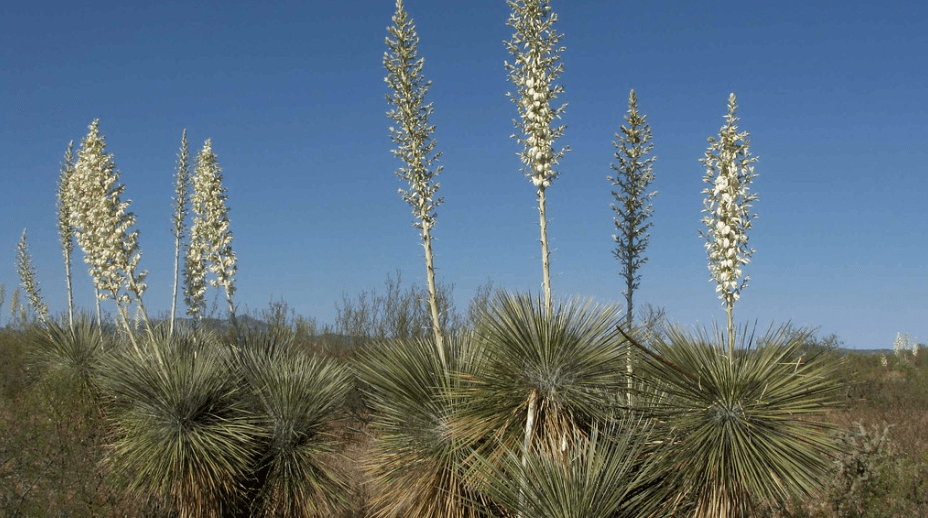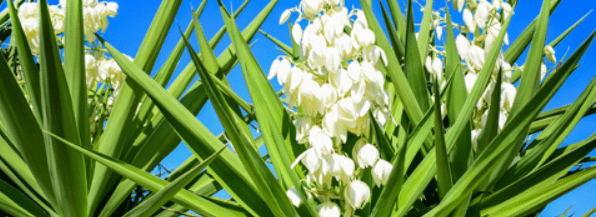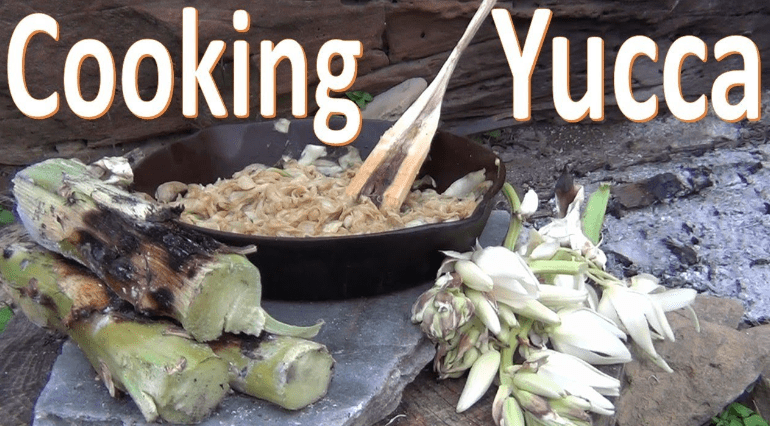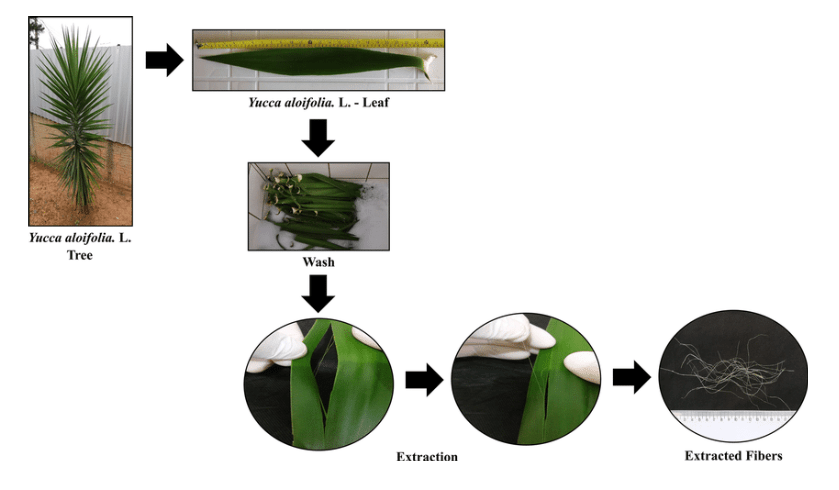
Exploring the Benefits of Soap Tree Yucca Plant
The Soap Tree Yucca plant, scientifically known as Yucca elata, is a remarkable species renowned for its diverse uses and ecological importance. This article delves into the fascinating world of the Soap Tree Yucca plant, exploring its botanical features, traditional uses, medicinal properties, and ecological significance.
Table of Contents
ToggleBotanical Overview
A. Description of the soap tree yucca plant
The Soap Tree Yucca plant, also known as Yucca elata, is a type of evergreen shrub that is native to the southwestern United States and northern Mexico. This plant is characterized by its tall, spiky leaves and its large clusters of white, bell-shaped flowers. The roots and leaves of the Soap Tree Yucca contain saponins, which are natural compounds that have cleansing and foaming properties. These saponins are what make the plant so beneficial for medicinal and cleansing purposes. In traditional medicine, the Soap Tree Yucca has been used to treat various ailments such as arthritis, skin conditions, and digestive issues. Additionally, the plant’s saponins make it an effective natural cleanser and shampoo, making it a popular choice for natural beauty and skincare products. Overall, the Soap Tree Yucca plant is a versatile and beneficial plant that has been valued for its medicinal and cleansing properties for centuries.
B. Geographic distribution and natural habitat
The Soap Tree Yucca plant is native to the southwestern United States and northern Mexico. It is typically found in arid and semi-arid regions, where it thrives in well-drained sandy or rocky soils. The plant is well adapted to hot and dry climates and can withstand extreme temperatures and low water availability. It is often found in desert landscapes, rocky hillsides, and sandy plains. The Soap Tree Yucca’s ability to thrive in harsh environments makes it a valuable and resilient plant with many practical uses.
Traditional Uses
A. Historical use of soap tree yucca by indigenous peoples
The Soap Tree Yucca has a rich history of traditional use by indigenous peoples. Native American tribes such as the Navajo, Apache, and Hopi have utilized various parts of the plant for centuries. The roots of the Soap Tree Yucca contain saponins, which produce a natural lathering effect when mixed with water. This lather has been used as a natural cleanser for hair, skin, and clothing. Additionally, the plant’s fibers have been used to make rope, baskets, and sandals. The indigenous peoples also valued the medicinal properties of the Soap Tree Yucca, using it to treat a variety of ailments such as arthritis, dandruff, and joint pain. The plant holds cultural significance and continues to be an important part of traditional medicine and practices for many Native American tribes.
Nutritional Content

A. Nutritional profile of soap tree yucca
The Soap Tree Yucca plant offers a rich nutritional profile, making it a valuable resource for overall health and well-being. It is a good source of vitamins, including vitamin C and vitamin B complex, and is also rich in minerals such as calcium, potassium, and iron. These nutrients can contribute to a balanced and healthy diet. In addition to its nutritional benefits, the plant also holds cultural significance and is used in traditional medicine by indigenous peoples to treat various ailments such as arthritis, dandruff, and joint pain. It is a versatile plant that can also be used as a natural cleanser and shampoo, making it a valuable resource with multiple benefits.
B. Key vitamins, minerals, and phytochemicals found in the plant
The Soap Tree Yucca plant is packed with key vitamins, minerals, and phytochemicals that contribute to its medicinal properties and nutritional benefits. It contains high levels of vitamin C and vitamin B complex, which are essential for supporting the immune system and overall health. Additionally, the plant is rich in minerals such as calcium, potassium, and iron, which are important for bone health, muscle function, and energy production. Phytochemicals found in the plant have antioxidant and anti-inflammatory properties, making the Soap Tree Yucca a valuable resource for traditional medicine and natural health remedies. Its versatile nature allows for use as a natural cleanser and shampoo, further highlighting its value in both traditional and modern contexts.
Medicinal Properties
A. Overview of the medicinal properties of soap tree yucca
The Soap Tree Yucca plant has a wide range of medicinal properties that have been used in traditional medicine for centuries. It has natural anti-inflammatory and antioxidant properties, making it useful in treating a variety of health conditions. The plant is known for its ability to reduce inflammation, soothe skin irritations, and promote wound healing. It has also been used to treat conditions such as arthritis, digestive issues, and skin disorders. The natural compounds found in the plant make it a valuable resource for natural health remedies and traditional medicine. Additionally, the plant’s high levels of vitamins, minerals, and phytochemicals contribute to its overall medicinal benefits, making it a valuable and versatile plant for maintaining health and wellness.
B. Research on the plant’s therapeutic effects
Research on the plant’s therapeutic effects has shown that the Soap Tree Yucca plant contains saponins, a natural compound that acts as a natural cleanser and shampoo. These saponins have been found to have antimicrobial and anti-inflammatory properties, making the plant an effective ingredient in natural skincare and haircare products. Studies have also shown that the plant’s extract can promote hair growth and improve scalp health. Furthermore, the plant’s natural foaming properties make it an ideal alternative to synthetic foaming agents in soaps and shampoos. Overall, the Soap Tree Yucca plant’s therapeutic effects make it a valuable resource in natural medicine and personal care products.
Culinary Uses

A. Culinary traditions involving soap tree yucca
Culinary traditions involving soap tree yucca date back centuries, with Indigenous peoples using the plant for food and medicinal purposes. The roots of the Soap Tree Yucca plant can be used to make a nutrient-rich flour that is high in dietary fiber and antioxidants. This flour has been traditionally used to make bread, tortillas, and other baked goods. Additionally, the leaves of the plant can be used as a vegetable, either raw or cooked, and are a good source of vitamins and minerals. The plant’s culinary uses not only provide nourishment but also contribute to its overall value as a versatile and beneficial resource.
B. Edible parts of the plant and their preparation methods
The Soap Tree Yucca plant has several edible parts, including the roots and leaves. The roots can be harvested and processed to make a nutrient-rich flour that is high in dietary fiber and antioxidants. This flour can then be used to make bread, tortillas, and other baked goods. The leaves of the plant can be used as a vegetable, either raw or cooked, and are a good source of vitamins and minerals. In traditional Indigenous cuisines, these edible parts have been utilized for centuries as a source of nourishment and sustenance. When preparing the roots and leaves for consumption, it is important to ensure that they are properly cleaned and processed to remove any bitterness or toxins. Overall, the Soap Tree Yucca plant offers a valuable and versatile resource for culinary purposes, providing both nutritional benefits and a connection to traditional Indigenous foodways.
Industrial Applications

A. Industrial uses of soap tree yucca extracts
Industrial uses of soap tree yucca extracts include the production of natural soaps and shampoos. The saponins found in the yucca plant have natural cleansing properties that make them ideal for use in personal care products. These extracts can also be used as a natural alternative to chemical-based cleaners and detergents, as they are effective at removing dirt and grime while being biodegradable and environmentally friendly. Additionally, yucca extracts have been used in the textile industry as a natural surfactant for cleaning and processing fibers. The plant’s natural foaming and cleansing properties make it a valuable ingredient in a wide range of industrial applications. Overall, the soap tree yucca plant offers a multitude of benefits, from its medicinal properties to its versatility in traditional and industrial uses.
B. Role of the plant in manufacturing processes
The soap tree yucca plant has a significant role in manufacturing processes, particularly in the production of natural soaps and shampoos. The saponins found in the yucca plant have natural cleansing properties, making them ideal for use in personal care products. These extracts can also be used as a natural alternative to chemical-based cleaners and detergents, as they are effective at removing dirt and grime while being biodegradable and environmentally friendly. Moreover, yucca extracts have been used in the textile industry as a natural surfactant for cleaning and processing fibers. The plant’s natural foaming and cleansing properties make it a valuable ingredient in a wide range of industrial applications, contributing to the production of eco-friendly and sustainable products. Overall, the soap tree yucca plant plays a crucial role in manufacturing processes, offering a natural and effective alternative to traditional cleaning and personal care products.
Horticultural Value
A. Landscaping and ornamental uses of soap tree yucca
The soap tree yucca plant has a beautiful and unique appearance, making it a popular choice for landscaping and ornamental purposes. Its striking, sword-shaped leaves and tall flower spikes add a dramatic and exotic touch to any garden or outdoor space. The plant’s drought-resistant nature also makes it well-suited for arid and xeriscape landscapes, where it can thrive with minimal water and maintenance. In addition to its aesthetic appeal, the soap tree yucca’s hardy and resilient nature makes it a low-maintenance and durable addition to any landscaping design. With its versatility and visual impact, the soap tree yucca is a valuable and attractive choice for horticultural use.
B. Growing and caring for soap tree yucca in home gardens
The soap tree yucca plant is a popular choice for landscaping and ornamental purposes due to its beautiful and unique appearance. Its drought-resistant nature makes it well-suited for arid and xeriscape landscapes, where it can thrive with minimal water and maintenance. When growing and caring for soap tree yucca in home gardens, it’s important to ensure that the plant has well-draining soil and receives plenty of sunlight. Additionally, regular watering is essential in the plant’s early stages of growth, but as it matures, it becomes more drought-tolerant. Pruning dead or damaged leaves and flowers can help maintain the plant’s appearance and promote healthy growth. Overall, the soap tree yucca is a versatile and visually striking addition to any home garden.
Sustainability and Conservation
A. Importance of sustainable harvesting practices
The soap tree yucca plant has been valued for its medicinal properties and traditional uses for centuries. It’s important to harvest and utilize this plant in a sustainable way to ensure that it continues to thrive in its natural environment. Sustainable harvesting practices involve only taking what is needed and allowing the plant to regenerate and grow. It’s also important to respect the natural habitats of the soap tree yucca and to protect the ecosystems where it grows. By practicing sustainable harvesting, we can continue to benefit from the medicinal and cleansing properties of the soap tree yucca while also preserving its natural environment for future generations.
B. Threats to soap tree yucca populations
include overharvesting, habitat destruction, and climate change. Overharvesting the plant for its medicinal and cleansing properties can deplete populations and harm the plant’s ability to regenerate. Habitat destruction, such as deforestation and urban development, can also threaten the soap tree yucca’s natural habitat and reduce its population. Additionally, climate change can have a negative impact on the plant’s ability to thrive in its natural environment. It’s important to address these threats and work towards conserving the soap tree yucca population for the future. By implementing sustainable harvesting practices and protecting the plant’s natural habitat, we can help ensure the continued existence of this valuable and beneficial plant.
In conclusion, the Soap Tree Yucca plant offers a wide range of benefits, from its medicinal properties to its use as a natural cleanser and shampoo. Its versatility makes it a valuable addition to traditional medicine and natural skincare routines. Whether you’re looking for a natural alternative to commercial cleansers or interested in the plant’s historical uses in traditional medicine, the Soap Tree Yucca plant is worth exploring for its many beneficial properties.
Frequently Asked Questions
The Soap Tree Yucca Plant has a variety of benefits, including its use as a natural soap and shampoo. It contains saponins, which are natural cleansing agents that can be used for cleaning the body, hair, and even laundry.
The roots of the Soap Tree Yucca Plant are traditionally used to make a soapy lather when mixed with water. This lather can be used for cleaning and hygiene purposes.
In addition to its use as a natural soap, the Soap Tree Yucca Plant has also been used for its medicinal properties. It has been traditionally used to treat various ailments such as arthritis, skin conditions, and digestive issues.
Yes, the Soap Tree Yucca Plant can be grown at home, especially in regions with a desert or semi-desert climate. It is a low-maintenance plant that can thrive in dry and arid conditions.
It’s important to be cautious when using the Soap Tree Yucca Plant, as the saponins in the plant can be toxic if ingested in large quantities. It’s best to use it externally for cleaning purposes and to avoid using it on open wounds or broken skin.
There are a variety of natural and organic skincare products that contain extracts from the Soap Tree Yucca Plant. These products can be found in health food stores, online retailers, and specialty beauty shops.
